Emergency Dentist — Kerrville, TX
Dedicated to Getting You Out of Discomfort
When a dental emergency occurs, our top priority is helping you get out of pain and making you feel calm. Even if you’re a new patient, we’re more than happy to see you during regular dental office hours. When you do arrive, Dr. Butler will examine your mouth, treat your issue, then get you on the right path towards long-term care. This could be repairing your tooth with a crown made in our dental office or treatment to remove decay causing your dental discomfort. Keep reading or reach out to us to learn more about emergency dentistry in Kerrville, TX.

Why Choose Carroll R. Butler, DDS Family Dentistry for Emergency Dental Care?
- Expert Dentist and Team Provide Exceptional Comfort
- Varying Strengths of Sedation Dentistry Available
- Advanced Technology for More Predictable Treatment Planning
How We Treat Dental Emergencies

- Schedule an appointment: After you call our practice, we’ll do everything we can to get you seen as soon as possible. Our team members are also happy to provide helpful first-aid tips over the phone to make it easier to manage your dental emergency until your appointment.
- Emergency exam: Once you arrive at our office, we’ll get you seen by Dr. Butler right away so he can perform an emergency exam and capture digital X-rays if needed to locate the cause and specific location of your dental emergency. He’ll also work quickly to get you out of discomfort so you can feel more comfortable.
- Review findings: Following the exam, Dr. Butler will recommend a treatment (or series of treatments) to address your dental emergency and prevent it from getting worse (or coming back). This treatment plan will include estimated costs and expected timeline, so you can make an informed decision before committing to anything.
- Get the care you need: While the most common treatments for dental emergencies include dental fillings, crowns, root canal therapy, and tooth extractions, they are not the only options we will consider. It truly depends on the type and severity of your dental emergency.
The Most Common Dental Emergencies
Common dental emergencies Dr. Butler treats include toothaches, chipped and cracked teeth, and teeth that have been knocked out or become loosened due to physical injury. However, they can come in many different forms, which is why it’s always better to seek help right away, even if you aren’t sure if your symptoms feel urgent. If you do notice any of the following symptoms, get in touch with us today!
Understanding the Cost of Emergency Dentistry
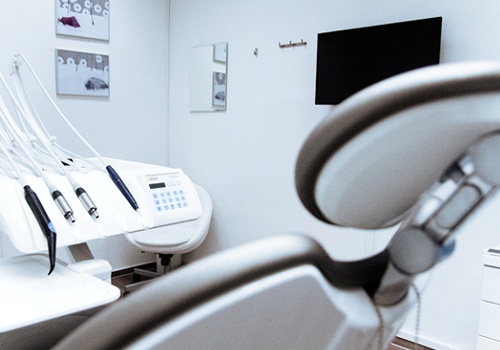
No two dental emergencies are the same. Although they may share similarities, a cookie-cutter treatment plan just won’t do. As a result, there’s not a set fee for emergency services because we don’t want you paying for anything you don’t need. We’ll provide you with a personalized estimate and discuss your payment options because the cost of emergency dentistry in Kerrville shouldn’t stand in your way of getting the care you need. We’ll save your smile and stop your pain without draining your bank account.
Every Dental Emergency is Different
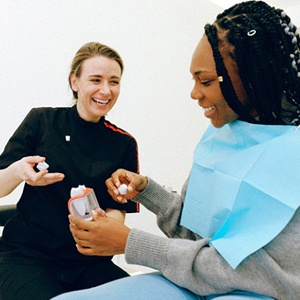
Since every dental emergency differs, you’ll need an individualized plan to save your smile. Your emergency dentist in Kerrville will examine your mouth to create a strategy, which may include:
- Tooth extractions
- Dental crowns
- Root canal therapy
- TMJ therapy
- And more!
Don’t worry, you’ll know exactly what you’ll need to pay before committing to any procedure. You won’t be surprised by any unexpected fees to make a stressful situation a little easier.
Does Dental Insurance Cover Dental Emergencies?
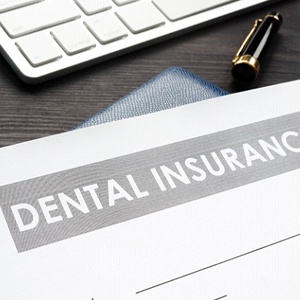
Most dental plans offer coverage for emergency care. Although it won’t pay the entire cost, you can often use your benefits for the consultation. If you require any treatment, like a crown, you can use your policy to offset the amount you pay out-of-pocket. After reaching your annual deductible, your insurance can pay up to 80% of the cost using your yearly allowance. We’ll work on your behalf with your dental insurance to maximize your coverage to lower the cost of your treatment.
Other Options for Making Dental Emergencies Affordable
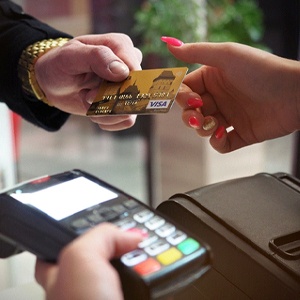
If you don’t have dental insurance or there’s a remaining balance, don’t worry. We strive to keep our services affordable for everyone. We offer several payment options, including:
- Traditional Methods: We accept cash, checks, and major credit cards.
- Third-Party Financing: We accept third-party financing to make low monthly payments to pay for your treatment.
Taking Care of Your Smile Can Save You Money
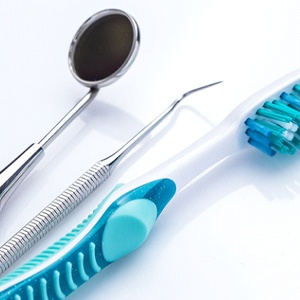
The best way to avoid the unexpected expense of a dental emergency is through prevention. Research shows every $1 spent on prevention can save up to $50 on emergency and restorative services because you stop common dental issues from occurring, like cavities.
Besides brushing and flossing, a crucial component to keeping your smile healthy involves routine trips to your dentist. Even if you don’t currently have any dental concerns, visit your dentist at least twice a year for a cleaning and checkup.
If you play sports, don’t forget to give your smile the protection of an athletic mouthguard. It provides a barrier for your teeth, gums, and oral structures to lessen the risk of serious injury if there’s any trauma to the mouth.
If you have a dental problem, don’t wait to have it treated. It will continue to worsen until it leads to a dental emergency. Not to mention, you might lose your tooth. It’s best to have any concerns resolved quickly to safeguard your smile against additional complications.
Keys to Preventing Dental Emergencies
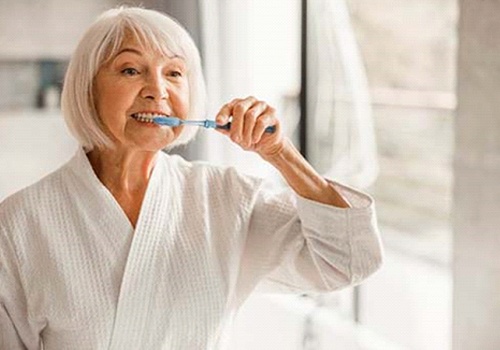
Preventing dental emergencies in Kerrville is always more ideal than treating ones that come up. Not only is it cheaper, but it enables you to avoid the discomfort and uncertainty that often occurs. While we encourage you to invest in routine dental checkups every six months, it’s also important to brush and floss at home, wear protective mouthguards if you grind your teeth or play contact sports, and never use your teeth as a tool (which can easily crack or chip your enamel). Below are just a few of the many ways you can be proactive when it comes to avoiding dental emergencies.
Keep Your Regular Dental Appointments
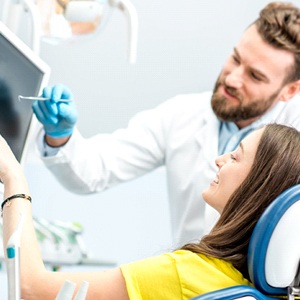
Regular six-month dental checkups and cleanings are some of the most pivotal ways to keep your smile free of decay and damage. Cavities and gum disease are two common culprits behind tooth loss, infection, and worsening overall health. To minimize your risk of serious toothaches and more serious (and costly) dental care, keep these appointments and let the professionals provide the care you need before it gets out of hand. Otherwise, you’ll be forced to spend your time visiting the emergency dental office in Kerrville when you least expect it.
Keep Brushing and Flossing

A solid at-home oral hygiene routine is equally as important as seeing your dentist every six months. Brushing twice a day for two minutes, flossing at least once a day, and rinsing regularly helps to remove bad bacteria and other germs that are known to cause cavities and gum disease. If you want to reduce your risk for inflammation, bone and tooth loss, and dental caries, maintain a good oral hygiene routine every morning and night.
Be Mindful What You Eat

The foods you eat can help or hinder your oral and overall health. Sugars and starches might sound tasty, but they’ll put you at risk for more than just cavities. They’ll also negatively impact your heart, brain, gut, and other vital organs. Maintaining a healthy diet is key for better health and wellness, which is why you should swap out sweets for healthier alternatives like calcium-enriched foods, leafy greens, lean proteins, and plenty of fruits and vegetables. These not only improve gum health and strengthen tooth enamel, but many can act as natural toothbrushes that clean your teeth of any bacteria and food particles that may try to adhere and spread.
Wear a Mouthguard to Protect Your Teeth
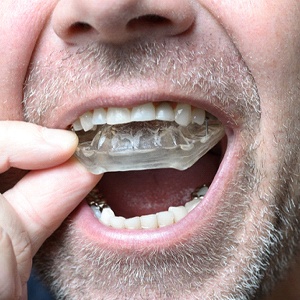
Asking your dentist about a customized mouthguard is one of the best investments you can make in your oral health, especially if you play sports or suffer from bruxism. A sudden fall or hard hit on the field, court, or track can leave you with busted, knocked-out, and cracked teeth. Grinding and clenching your teeth while you sleep can cause worn tooth enamel and chronic jaw pain. With the help of a mouthguard, you can better protect your pearly whites and soft oral tissues from serious injury. Whether it’s to safeguard against someone else during a game or yourself while asleep at night, these oral appliances are made to fit comfortably and offer maximum support.
Use Tools to Open Packages, Not Your Teeth

Your tooth enamel is strong, but not indestructible. Designed to tear through food, they cannot and should not be used to rip open packages and containers. This is why we have tools like scissors, pliers, and other instruments. It might seem quicker to just use your teeth to open that small plastic covering on your medicine bottle, but you’ll put yourself at risk for enamel wear and more serious injury if you’re not careful. It’s best to avoid this practice altogether and instead, spend a few minutes to find the right tool for the job.
Dental Emergency FAQs
Will My Toothache Go Away on Its Own?
In most cases, a toothache will not go away on its own. That’s why you should schedule a visit with your emergency dentist in Kerrville as soon as you notice any pain. Dr. Butler will conduct a thorough oral examination to ensure nothing is wrong. Since there are many possible causes for a toothache, it’s incredibly important to rule them out by a professional as soon as possible. By addressing problems early on, you can keep them from turning into severe complications down the line.
What Does Throbbing Tooth Pain Mean?
Throbbing tooth pain is usually a sign of an infection or inflammation within the tooth. When cavities inside the tooth allow air and bacteria to reach the sensitive inner area, it results in irritation and infection of the pulp nerves. Sometimes, throbbing teeth could happen from chronic teeth grinding and clenching.
My Chipped Tooth Doesn’t Hurt. Do I Still Need to Visit?
If you ever chip a tooth, it’s crucial that you see a dentist immediately following the incident. It may not be painful, but Dr. Butler will need to examine the tooth to ensure the inner area isn’t exposed. Although you can wait a day or two if needed, you should make an appointment as soon as you can. Otherwise, choosing not to seek dental attention puts your tooth at risk of further damage.
What Should I Keep in My Emergency Dentistry Kit?
Everyone should have an emergency dentistry kit on hand just in case they ever find themselves in the middle of a dental emergency. Here are a few things you should keep in there:
- A small sealable container for teeth or dental restorations
- Sterile gloves, ideally nitrile
- Gauze pads and dressings
- Cotton balls
- Dental cement or temporary filling material
- Denture adhesive
- Petroleum jelly
- Anti-inflammatory pain medication like ibuprofen
- Topical anesthetic (i.e., Orajel or a similar product)
- Dental floss
- An ice pack or another cold compress
- Contact information for a dental practice
I Need a Checkup & Cleaning I Need a Dentist for My Child I am Concerned About Bleeding Gums I Need Full Mouth Rehabilitation I Have a Cavity or Broken Tooth I am Missing One or More Teeth I Want to Enhance My Smile I am Anxious/Afraid of the Dentist View Our Services

